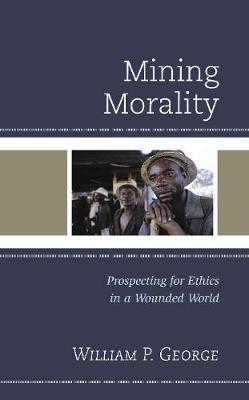Mining Morality

Mining Morality
George introduces readers to remarkable moral miners--the women of Butte and Chuquicamata, a World Court judge from Sri Lanka, the Rocket Boys of Coalwood, West Virginia, to name a few--and leads them to consider not only the morality of mining--what's good and not so good about resource extraction--but also the mining of morality, a venture that Socrates called "the examined life."
PRP: 884.00 Lei
Acesta este Pretul Recomandat de Producator. Pretul de vanzare al produsului este afisat mai jos.
795.60Lei
795.60Lei
884.00 LeiIndisponibil
Descrierea produsului
George introduces readers to remarkable moral miners--the women of Butte and Chuquicamata, a World Court judge from Sri Lanka, the Rocket Boys of Coalwood, West Virginia, to name a few--and leads them to consider not only the morality of mining--what's good and not so good about resource extraction--but also the mining of morality, a venture that Socrates called "the examined life."
Detaliile produsului









